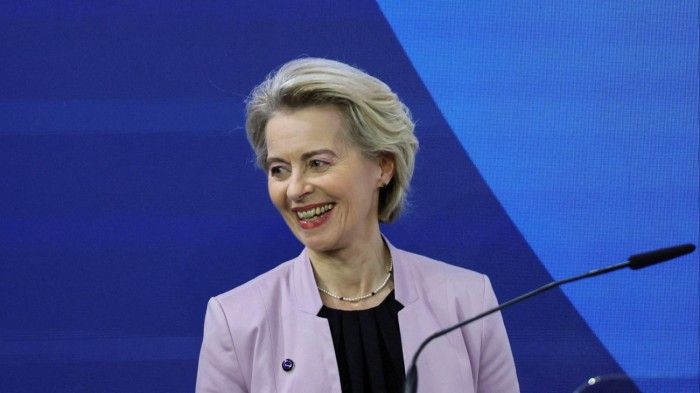Unlock the White House Watch newsletter for free
Your guide to what the 2024 US election means for Washington and the world
The writer is a fellow at Stanford University’s Institute for Human-Centered Artificial Intelligence and the Cyber Policy Center. She is the author of ‘The Tech Coup’
Any hopes for a reasonable US foreign policy under Donald Trump were shattered last weekend at the Munich Security Conference. European leaders received an ice-cold message from vice-president JD Vance. His speech marked the formal end of the transatlantic alliance as it has existed since the second world war. Vance’s rhetoric conveyed a deep disdain for Europe, questioning its democracy. Tech companies that have offered unprecedented support for Trump apparently do not see this as a problem. They have aligned themselves as anti-European forces. As Europe reckons with the new transatlantic reality, its leaders should start treating the Silicon Valley giants as adversarial powers.
On Monday, European leaders held an emergency summit to organise their defence capabilities and support for Ukraine. Yet the other emergency should not be forgotten: the role that big tech companies play in supporting Trump’s new order. If Europe hopes to safeguard its own sovereignty and values, it must strategically decouple and dramatically lessen its dependence on companies that are either seeking confrontation or are otherwise vulnerable to being weaponised by Washington.
Silicon Valley’s top brass have proven increasingly willing to bend the knee to Trump’s regime. Take Sam Altman of OpenAI. While Altman has voiced concerns about the dangers of artificial intelligence, he has also supported a deregulated tech environment under the new president — one that prioritises corporate interests over public safety.
Then, consider the actions of Google. In an apparent attempt to appease Trump’s revisionist worldview, Google quickly renamed the Gulf of Mexico as the “Gulf of America”. This gesture goes beyond mere corporate branding; it signals a deeper complicity with an administration that actively seeks to rewrite international norms.
Joel Kaplan, Meta’s global affairs chief, has publicly stated that the company counts on the White House to challenge European governments it felt discriminated by. Mark Zuckerberg, meanwhile, has lobbied Trump to fight European competition fines in a bid to cast them as punitive trade measures.
Alex Karp, chief executive of Palantir, is perhaps the most explicit in expressing his allegiance. While he backed Kamala Harris for president last year, he is proudly aligned with the US and happy to “scare enemies and on occasion kill them”.
Elon Musk’s embrace of Trump’s agenda further exemplifies Silicon Valley’s complicity. Musk continues to support far-right politicians in Europe and now uses his growing control over the US government to advance his corporate objectives. With increasing influence over key industries, Musk’s alignment with the Trump administration signals a new era in which tech companies are de facto (geo)political actors.
It wasn’t long ago that these tech companies billed themselves as defenders of democracy and human rights. This narrative, while always romanticised, in retrospect appears even more of an opportunistic stance. By supporting Trump’s administration, tech companies are actively contributing to the unravelling of an international order based on the rule of law and democracy.
Remarkably, despite their deepening ties with Trump’s policies, these companies face little public backlash. Their reputations remain largely unscathed by their collaboration with an administration that undermines core democratic principles. Share prices are up.
But for Europe, business as usual is no option. As it navigates shifting relations with the US, it must recognise that tech companies’ entanglements with Trump’s administration pose a direct threat to European sovereignty and values. Moreover, from cloud computing to artificial intelligence, these companies hold enormous sway over Europe’s digital future and their involvement in Trump’s nationalist agenda can be weaponised. Europe’s growing dependency on US tech groups is a critical weakness. We must prioritise reducing this reliance and invest in building a more resilient, independent and secure digital ecosystem: a Eurostack.
The stakes have never been higher. As America grows increasingly distant from its European allies, tech companies are cementing their loyalty to a government that poses a fundamental threat to the values Europe holds dear. It is time for Europe to end its debilitating dependence on American tech groups and take concrete steps to shield itself from the growing dangers of this new, tech-fuelled geopolitical landscape.
Read the full article here




